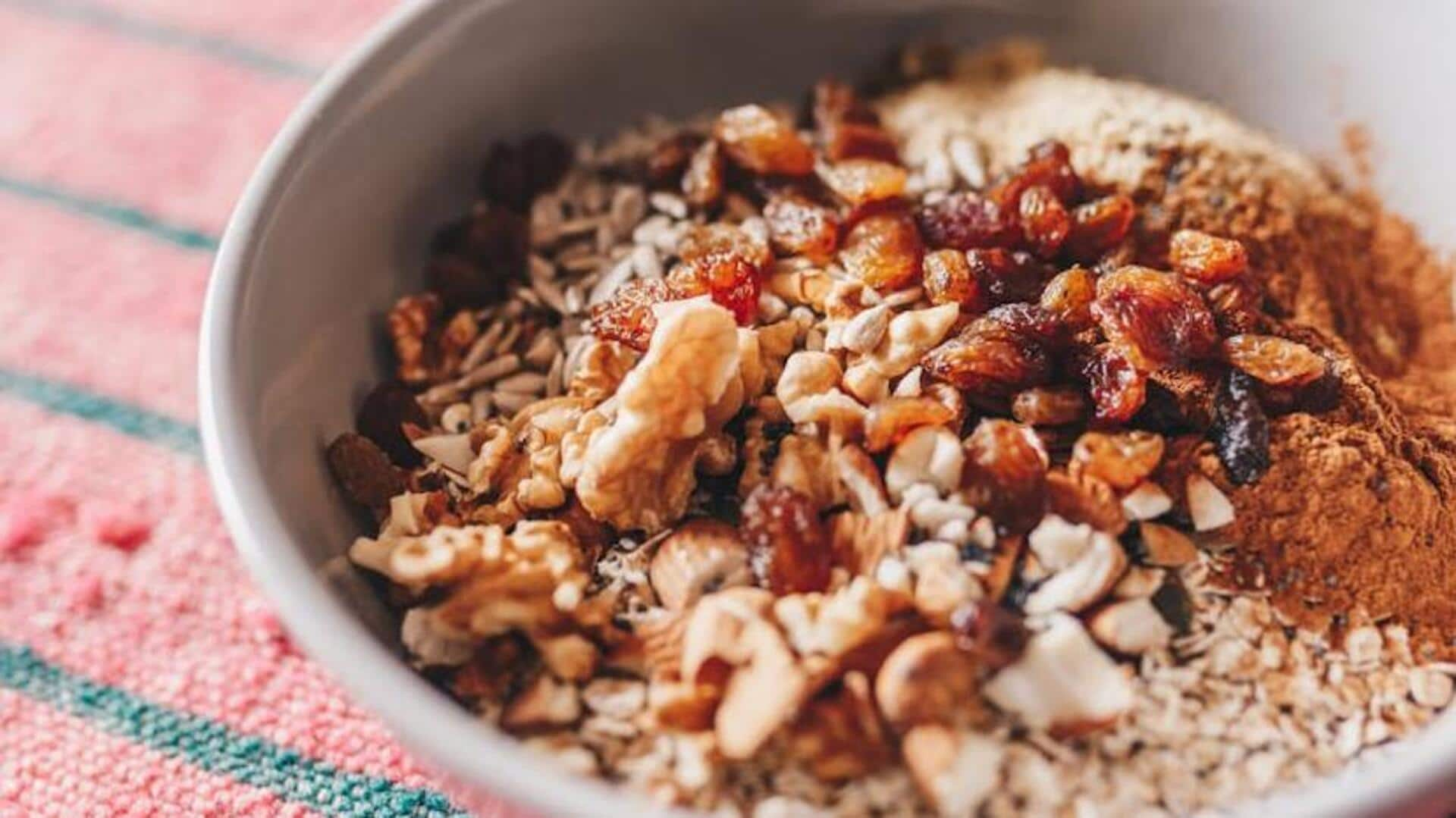
Lowering cholesterol with fiber-rich recipes
What's the story
High cholesterol is a prevalent health concern that can contribute to potentially life-threatening cardiovascular conditions. One of the most effective strategies to regulate and reduce cholesterol levels is through dietary modifications, specifically by adding more fiber to your diet. This article features easy, fiber-rich recipes that are not only delicious but also beneficial in lowering cholesterol and supporting heart health.
Oats
Incorporate oats for breakfast
Oats are an excellent source of soluble fiber, which has been proven to lower cholesterol levels. By consuming a bowl of oatmeal every morning, you can significantly decrease the LDL (bad) cholesterol in your body. For a healthy breakfast, cook oats in skimmed milk or water and add fresh fruits such as berries or sliced apples for extra fiber.
Legumes
Add legumes to your diet
Legumes, such as beans, lentils, and chickpeas, are excellent sources of soluble fiber, which can help lower high cholesterol. By incorporating these nutrient-dense foods into your everyday meals, whether in salads, soups, or stews, you can actively manage and reduce your cholesterol levels. A colorful chickpea salad, packed with an array of veggies and lightly dressed, can be both a delicious and heart-healthy choice.
Nuts/seeds
Snack on Nuts and Seeds
Nuts and seeds: Not only are they packed with healthy fats, but nuts and seeds also offer substantial fiber benefits. Almonds, walnuts, flaxseeds, and chia seeds make great snack choices for reducing cholesterol levels. Remember to enjoy these in moderation though, as they are calorie-dense. Aim for roughly a handful a day to effectively balance intake and benefits.
Whole grains
Embrace whole grains
Another simple tip to boost your fiber intake is to choose whole grains over refined ones. Unlike refined grains, whole grains such as brown rice, quinoa, barley, and whole wheat products retain their high fiber content. Adding whole grains to your meals can help lower cholesterol and promote overall digestive health.
Fruits/vegetables
Focus on fruits and vegetables
Fruits and vegetables are excellent sources of dietary fiber and are also rich in vitamins and minerals that support heart health. Try to incorporate at least five servings of fruits and vegetables each day by adding them to every meal or enjoying them as snacks between meals. Berries, pears, apples as well as leafy greens like spinach or kale are great options for increasing your daily fiber intake.